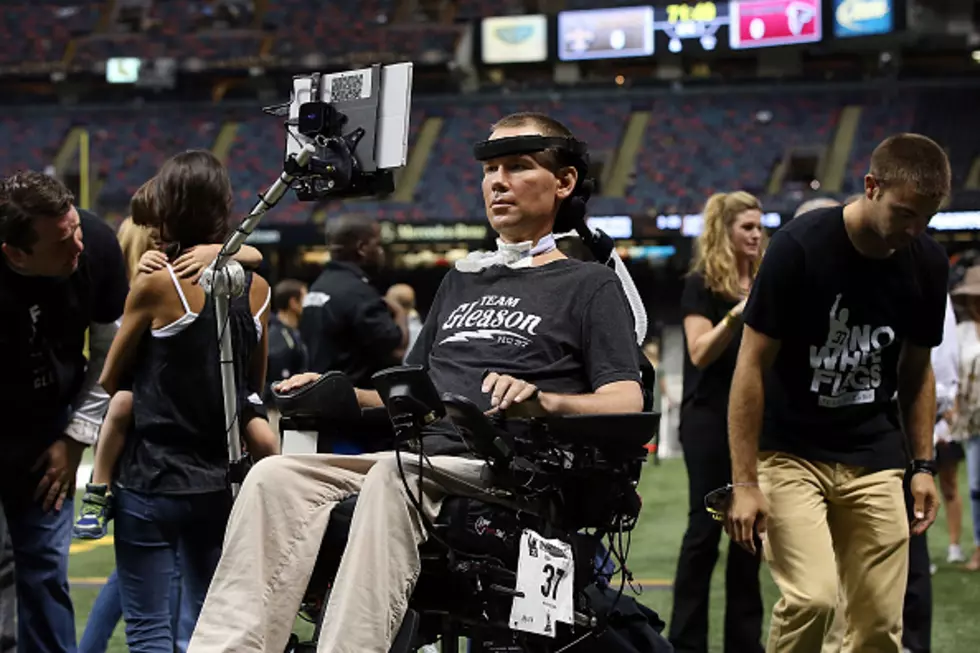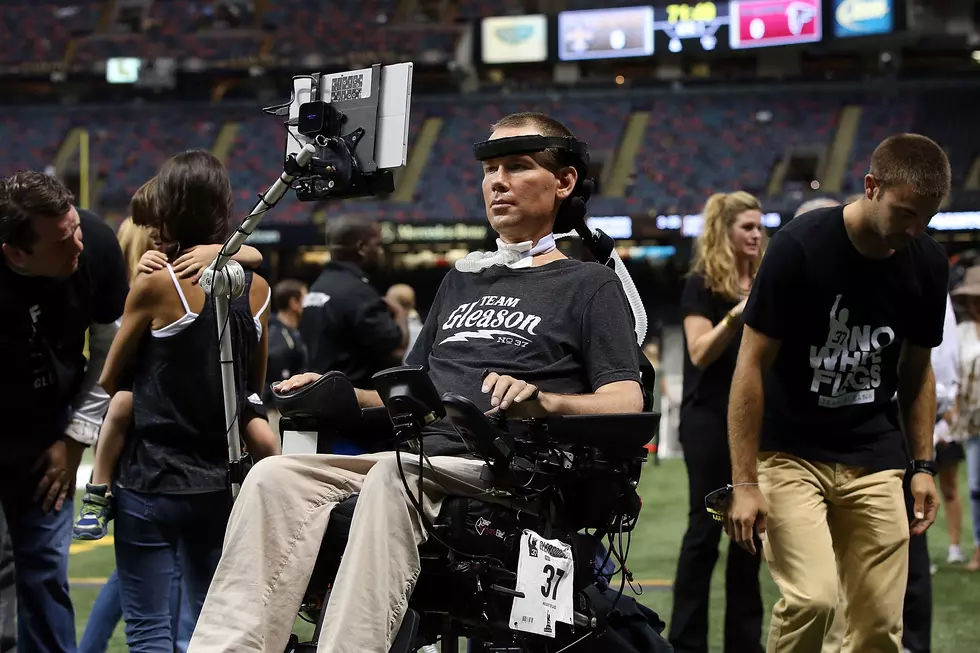
U.S. Senate Passes Vitter’s Steve Gleason Act Of 2015
(Washington, D.C.) – U.S. Senator David Vitter (R-La.) today announced that the U.S. Senate has unanimously passed his bipartisan legislation, the Steve Gleason Act of 2015. Vitter’s legislation will make speech generating devices (SGDs) more accessible, helping patients diagnosed with diseases such as Amyotrophic lateral sclerosis (ALS) live more independent lives. His legislation is named in honor of Steve Gleason, former professional football player with the New Orleans Saints, who was diagnosed with ALS in January 2011. Vitter has been working with Steve and his foundation, Team Gleason, on this legislation since 2014. Leadership in the House of Representatives has also assured Vitter they will bring his bill to the House floor for a vote.
“Living with ALS is a tremendous challenge for the patients and their families. Our bill will help empower ALS patients to live and work more independently, and give them an opportunity to communicate with their loved ones” Vitter said. “Speech generating devices, like the equipment Steve Gleason uses, are a necessary part of everyday life for patients with ALS and similar diseases. To say that Steve and the rest of Team Gleason have been an inspiration is an understatement. Through their incredible work, we’ll be able to change the lives of patients across the country by giving them their voices back.”
“Thank you to Senator Vitter and all legislative leaders and organizations who supported this critical legislation. Additionally, I want to acknowledge all the ALS advocates who used any means possible to connect with their legislators, encouraging them to support this effort,” Steve Gleason said. “Communication is one of the most powerful tools humans possess, and is often taken for granted. However, when you lose the ability to move and speak, communication becomes not only empowering, but also life sustaining. I have always said, "until there is a medical cure for ALS, technology can be that cure". Just as technology helps me and others eat and breathe, it also allows me to communicate. And, without communication, I likely wouldn't be here today, much less have the ability to fight for this legislation.”
The Steve Gleason Act of 2015 would make the following reforms:
- Gives immediate relief for patients who have been denied access to SGDs since the Administration’s rule change in 2014
- Reverses the Centers for Medicare & Medicaid Services (CMS) capped rental policy to allow patients to own their devices and continue using them in facilities such as nursing homes
- Ensures eye tracking technology and gaze interaction accessories are covered under Medicare for ALS patients with demonstrated medical needs. NOTE: this is how Gleason is able to verbally communicate.
Vitter’s bipartisan bill is co-sponsored by Senators Angus King (I-Maine), Amy Klobuchar (D-Minn.), Lisa Murkowski (R-Alaska), Chuck Grassley (R-Iowa), Mark Kirk (R-Ill.), and Susan Collins (R-Maine). Congresswoman Cathy McMorris Rodgers (R-Wash.) introduced the companion bill in the House of Representatives along with original co-sponsors Congressmen Steve Scalise (R-La.) and Erik Paulsen (R-Minn.). The legislation is endorsed by Steve Gleason’s advocacy organization, Team Gleason, the ALS Association, the American Speech-Language Hearing Association, Center for Medicare Advocacy, the American Occupational Therapy Association, and the United Spinal Association.
Vitter also worked with Team Gleason last year to pressure CMS to rescind a designation that limited access for certain medical equipment, including the speech generating device that Gleason uses.
In the 113th Congress, Vitter along with Senator Chuck Schumer (D-N.Y.) introduced bipartisan legislation, the Ensuring Access to Quality Complex Rehabilitation Technology Act, which would create a separate benefit category for Complex Rehab Technology (CRT), such as a power chair or speech devices, within the Medicare program.
Since being diagnosed with ALS, Gleason has since been confined to a wheel chair and lost his ability to speak. Gleason’s speech generating device has allowed him to regain his ability to communicate. Team Gleason has worked to provide individuals with neuromuscular diseases with leading edge technology and create a global conversation about ALS to ultimately find effective treatment and a cure.
Gleason came to Washington D.C. as Vitter’s guest to the State of the Union in January 2015. Vitter and Team Gleason met with U.S. Department of Health and Human Services Secretary Sylvia Burwell to discuss ALS legislation.
More From News Talk 96.5 KPEL




![Reliving Steve Gleason’s Punt Block Heard Around The NFL [Video]](http://townsquare.media/site/34/files/2019/09/GettyImages-610587804.jpg?w=980&q=75)


![Steve Gleason to Receive Congressional Gold Medal [VIDEO]](http://townsquare.media/site/33/files/2019/01/GettyImages-514965922.jpg?w=980&q=75)

